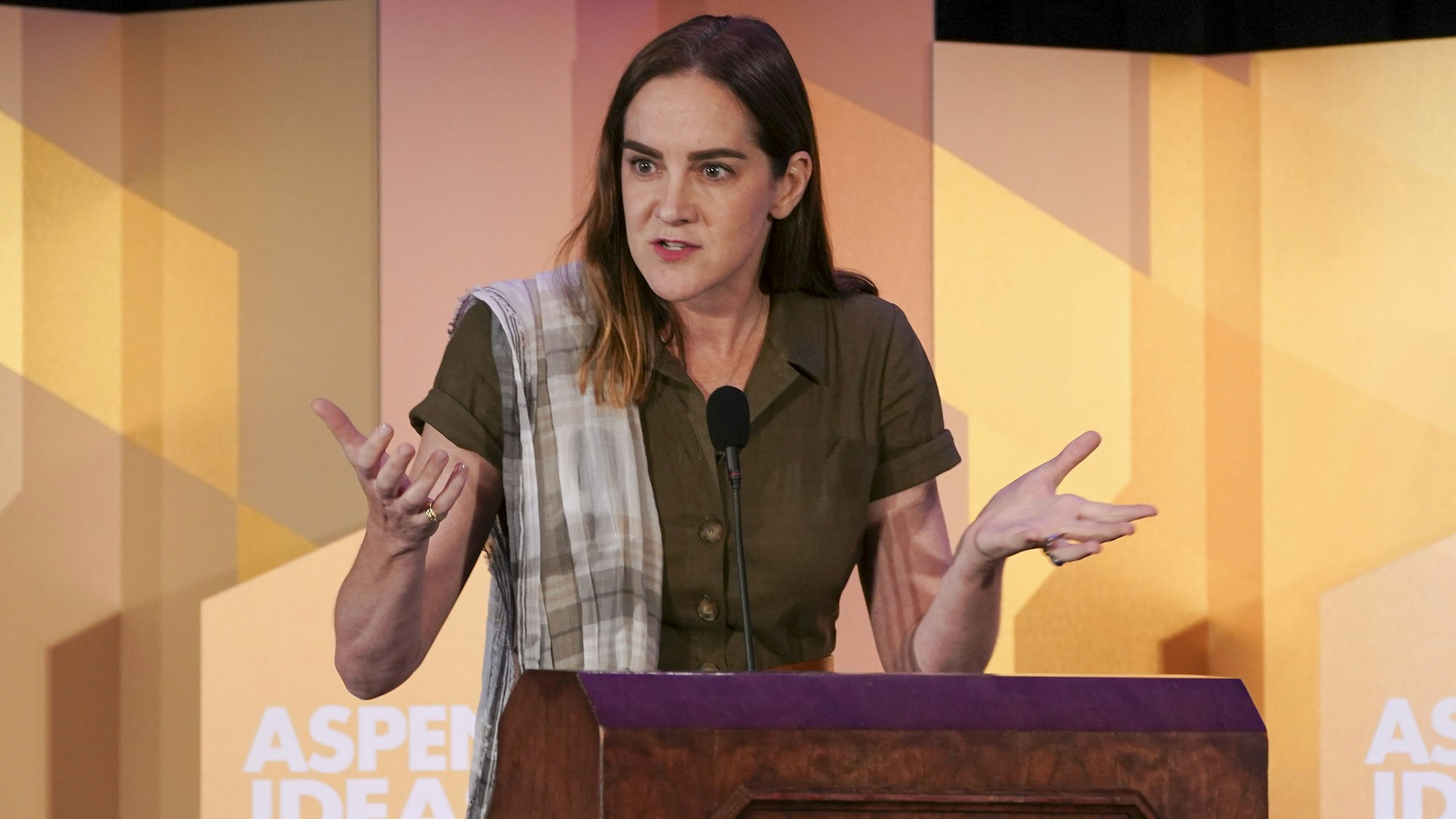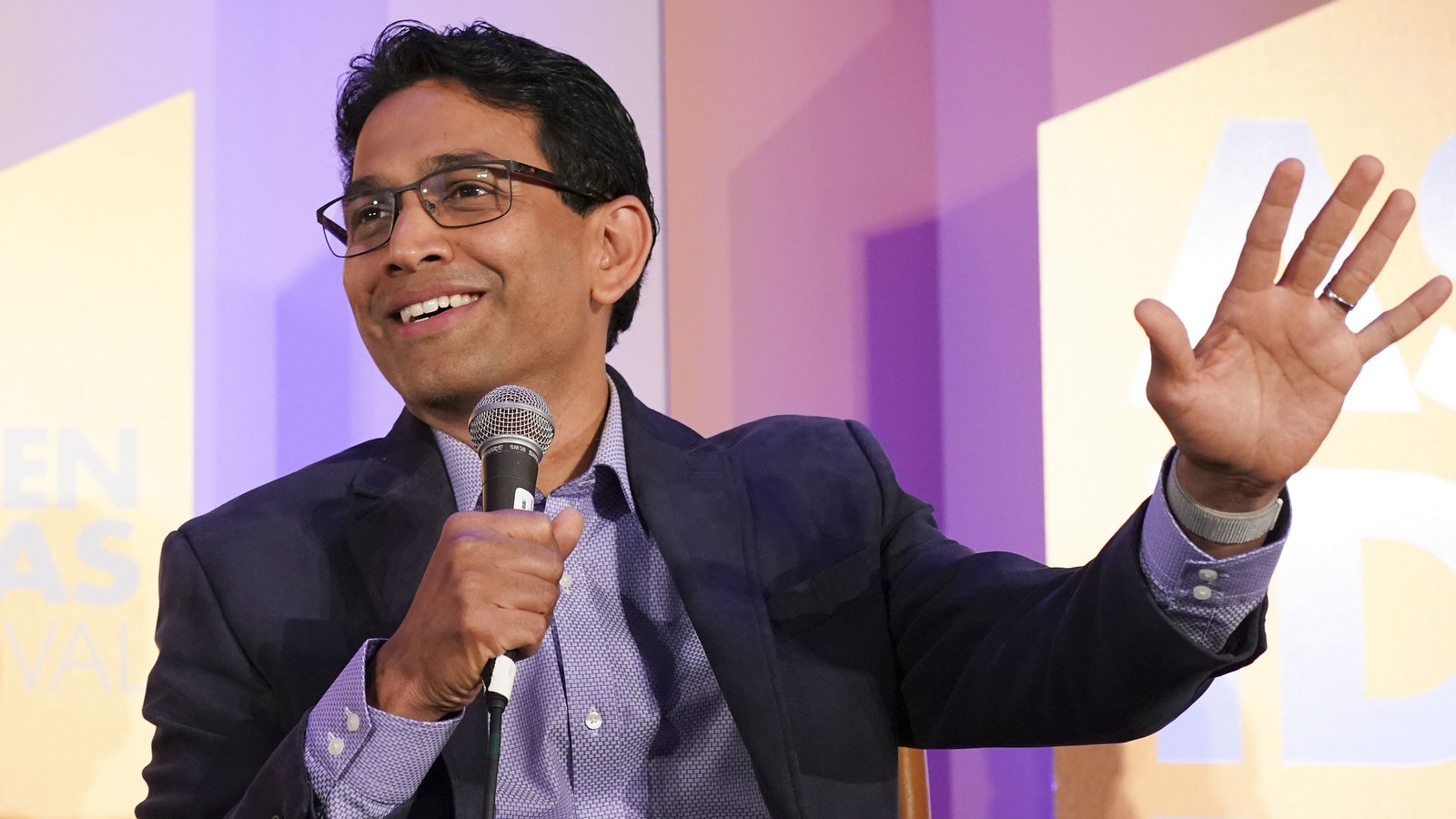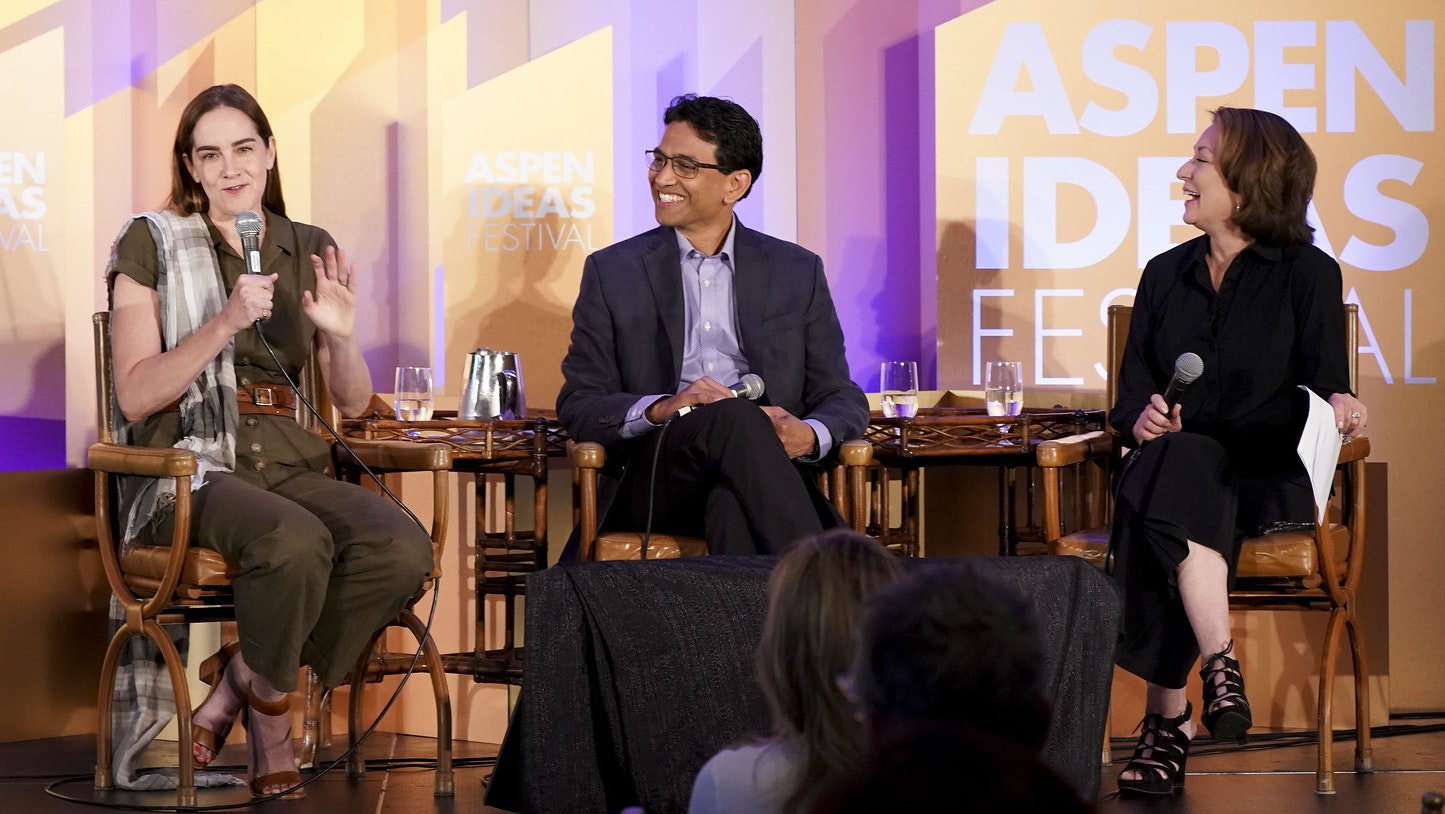
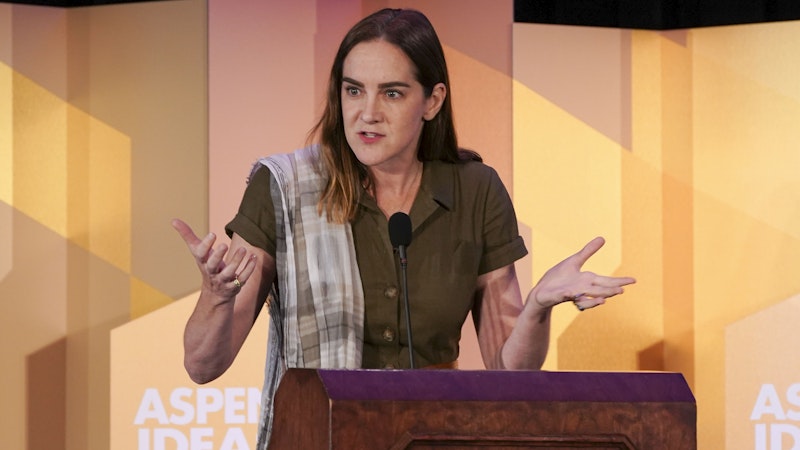
The Fate of Food: What We'll Eat in a Bigger, Hotter World
Setup
With crop production increasingly threatened by unpredictable weather and a world population expected to grow 30 percent by midcentury, how are we going to feed everyone? The race to reinvent the global food system is on, and solutions you’ve probably never heard of are already in play. One company is tackling problems around industrial agriculture by growing cell-based meat in a lab, eliminating both the need for animal slaughter and the grains we grow to feed them. Imagine a world where industrial animal farming and its harmful greenhouse gases no longer exist, where beef, poultry, and fish are consumed without interfering with the food chain.
- 2019 Festival
- Environment
- Health
How do you grow animal-less meat?
Nearly 100 percent of people in the world eat meat, and 750 billion pounds of meat are consumed every year, says Uma Valeti. . So how do you ensure access to safe and healthy meat for generations to come? Valeti’s company, Memphis Meats, harvests meat from cells insteads of animals — it’s not a meat alternative or plant-based protein. The company wants to preserve people’s choice to eat meat while using fewer natural resources, producing less waste, and emitting less greenhouse gas emissions. Watch Valeti explain the process of cultivating animal cells into meat:
There’s a fundamental advantage when you grow meat from cells, says Valeti — the only job those cells have is to become high quality meat cells. They don’t have to perform natural processes like growing hair, skin, and bones, so it takes 90 percent less resources to get the same amount of meat that you would from a live animal. What’s more, the production process is much shorter; growing cell-based meat takes 3 to 4 weeks as opposed to 9, 24, or 36 months depending on the animal species. Valeti also emphasizes the safety aspect of his product — because the meat is grown in a highly controlled environment from beginning to end, contamination is less likely.
The food revolution requires synergy
The pressures of population growth and climate change are intensifying and, at the same time, the world is seeing an increase in demand for food and a significant decrease in supply. How can we make clean, sustainable food equitable and available to everyone, not just the elite? This is a question Amanda Little, professor of investigative journalism at Vanderbilt University, found herself asking. She spent three years researching food production around the world. The answer, she says, requires synergy between diverse modes of food production.
Did you know?
In research for her book, Little explored everything from robotics, vertical farms, and GMOs to permaculture and edible insects. She says there’s a great divide between the reinventors of food and those who want food to be “de-invented.” She believes the path forward must reconcile old and new approaches to food production, and Uma Valeti agrees. “There’s a lot of tools in the toolkit we need to use,” he says. “We need conventional agriculture, regenerative agriculture, cell-based meat, we need plant-based proteins to be able to feed this growing demand.” Watch Little give an example of how modern technology can be intelligently applied to support traditional food production:
Bringing the food of the future into the mainstream
You can’t expect everyone to adopt new foods right away, says Uma Valeti, so Memphis Meats is working to demystify its cell-based products for consumers. He says personal experiences drive market growth: when you or someone you know has eaten a new product and enjoyed it. We’ve already seen that happen with products like the Impossible Burger and Beyond Meat, says Amanda Little. “There’s a lot of interest and excitement around alternatives.”
By the numbers
A number of other cell-based meat startups are competing in the same space, but this doesn’t worry Valeti. Having other companies in the market is a good thing, he explains, because it proves the value of the market, gets people comfortable with eating cell-based meat, and paves the way for more innovation. As for a timeline, we can expect to start seeing products like Memphis Meats in our grocery stores within the next few years. Just like any new technology, adds Little, as time goes on it will become increasingly accessible and affordable.
Learn More
Additional Information
Resources
Memphis Meats
The Fate of Food: What We’ll Eat in a Bigger, Hotter, Smarter World
The Race to Bring Meat Alternatives to Scale
Why This Cardiologist Is Betting That His Lab-Grown Meat Startup Can Solve the Global Food Crisis
Meat for a Hungry Planet
Explore More
Environment


The rapid development of the Covid-19 vaccine and the ramp-up of manufacturing and global distribution were unprecedented feats of medical coordination. But those on the insid...

Since 2014, Aspen Ideas: Health has welcomed nearly 800 inspiring women leaders to our stages to share their bold approaches to better health. In honor of Women's History Mont...

Our attitudes, habits, pleasures, and responsibilities shift across the generations, influencing the health challenges we face and how we respond to them. Expectations about h...

Setting audacious goals helps to redefine what is achievable in health, medicine, and science. As we deepen understanding of the human genome, unravel the mysteries of the bra...

As we wrap-up another year of elevating big ideas at Aspen Ideas: Health, we're excited to share the 15 most-watched sessions from the event. These conversations with inspirin...


Each year brings more destructive natural disasters and growing evidence of the challenging future we face if we don’t address climate change. But the biggest cause of climate...

In America, millions of people struggle with mental health including depression, anxiety, and more — all further exacerbated by living through a pandemic. The National Allianc...


If we do absolutely nothing to mitigate climate change, scientists estimate the toll could be $38 trillion a year in damages. Industrialized countries like the United States,...

The United States spends $4.3 trillion—almost one fifth of the nation’s GDP—on health care. As the scale of the medical enterprise expands, venture capitalists are pursuing th...

Today's kids are coming of age against a backdrop of political, social, technological and economic upheaval. While these circumstances are shaping a precocious generation that...

Advocates, healthcare providers, legislators, researchers, and venture capitalists are bringing the unique health needs of women to light – from vigorous policy debates on iss...

From the debate over reproductive rights to the epidemic of gun violence to the youth mental health crisis, this year's Aspen Ideas: Health sessions tackled many of today's mo...

The recognition that all things are connected is at once a scientific principle and a philosophical touchstone. Humans, animals, and the environment are intertwined in complex...

A couple of degrees makes a world of difference — megafires, rising seas, failing infrastructure, and food systems require our immediate attention. Demands on dwindling natura...
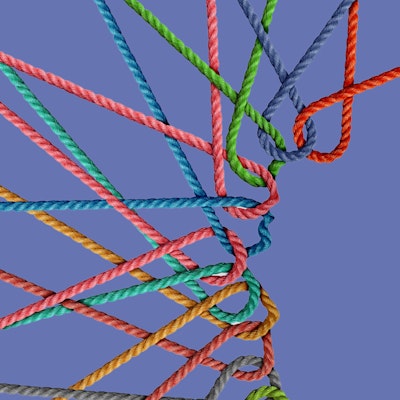
Our need for human connection is profound and deep. Yet, today, one in two adults are living with measurable levels of loneliness – and the numbers are even higher among young...

Women are crucial to the climate movement, but their voices are often underrepresented and their work goes under-supported. Meet just a few of the women from this year’s Aspen...

Heat is now the top weather-related cause of death in the U.S., killing more people than hurricanes, floods and tornadoes combined. An environmental journalist and two city ch...

Every transition comes with tradeoffs, and even clean energy carries negative consequences. As they mine for critical minerals or build solar arrays on sensitive land, clean e...

It sounds like sci-fi: Scientists are beaming solar energy from space, subbing seaweed for plastic and brightening clouds to reflect sunlight to lower temperatures in a warmin...

Artificial intelligence is revolutionizing health care by improving patient navigation, telehealth and the speed of drug development. From enhancing patient and provider exper...


